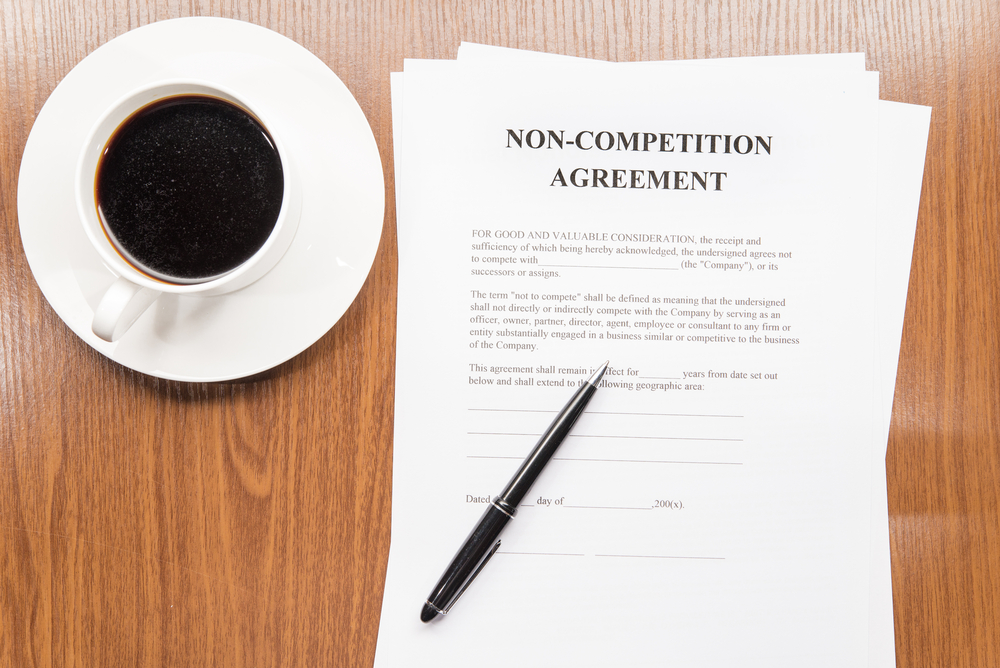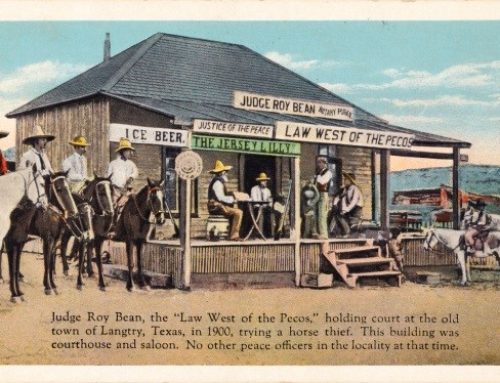Texas Businesses Rely on Non-Compete Contracts
It’s not unusual for many businesses to use non-compete agreements to prevent their current and former employees from engaging in competitive activities with competing firms during their employment or for a period of time immediately after the employment relationship ends. These non-compete clauses and contracts can help prevent employees from using an employer’s confidential information and trade secrets to compete with their former employer. However, employers should use an experienced attorney in drafting noncompete agreements. You would be surprised to discover how many businesses simply download something from the internet to serve as the employers non-compete agreement. This is a bad idea that can result in costly litigation and prevent the employer from recovering damages from an employee who has joined a competitor and is using his former employer’s confidential information to compete against their former employer.
An overreaching non-compete agreement can render the non-compete unenforceable and require the court to rewrite the agreement. It is important to avoid common mistakes when drafting these non-competition agreements. In this article, we’ll discuss five common mistakes employers make when drafting non-compete contracts.
Purpose of a Non-Compete Agreement
Ultimately, the purpose of a non-compete agreement is to protect the employer’s legitimate business interests and the investment the business has made in its employees and their training. No employer wants to devote time and money to develop a workforce only to see employees leave to join the competition, or start a competitive enterprise, once their skillset it complete.
Protecting your Dallas, Frisco, or Plano company from this financial strain can be a wise business move. Some non-compete contracts may be too restrictive to be considered fair, or they may fail to meet statutory requirements. These mistakes can make a non-compete agreement difficult to enforce in court.
Texas Court Analysis of Enforceability
The decisive factor for enforcement is whether the covenant is reasonable. In determining whether a restraint related to the sale or delivery of professional services is reasonable, the court may consider, but shall not reach its decision solely on the basis of, criteria which include: (1) whether the activities involved maintain or improve the quality of such services to benefit the public interest; (2) whether the activities involved limit or reduce the cost of such services to benefit the public interest.
The enforceability of a covenant not to compete is a question of law. Two initial inquiries must be made when determining whether an enforceable covenant not to compete has been created: (1) is there an “otherwise enforceable agreement,” and (2) was the covenant not to compete “ancillary to or part of “that agreement at the time the otherwise enforceable agreement was made. An employer’s promise to provide confidential or proprietary information and a reciprocal promise by the employee not to disclose such confidential information satisfies these requirements. Similarly, when the nature of the work an employee is hired to perform requires confidential information to be provided, the employer impliedly promises confidential information will be provided, satisfying this requirement.
Most employment agreements expressly contain both an agreement by the employer to share proprietary, secret, and confidential information with the employee, and a reciprocal promise by the employee not to disclose and not to make any copies of such information. Moreover, the nature of the work the employee was hired to perform requires the employer to provide the employee with confidential information. Accordingly, a covenant not to compete in the Employment Agreement with the required language will satisfy this threshold for enforcement.
Next, Texas courts are going to focus on whether the covenant not to compete is reasonable in time, scope, and geography. If the court finds that the covenant not to compete contains limitations as to time, geographic area, and scope of activity to be restrained that are not reasonable and impose a greater restraint than is necessary to protect the goodwill or other business interest of the employer, the court is required to reform the covenant to the extent necessary to cause the limitations contained in the covenant as to time, geographic area, and scope of activity to be restrained to be reasonable and to impose a restraint that is not greater than necessary to protect the goodwill or other business interest of the employer and must enforce the covenant as reformed. 1. TEX. BUS. & COM. CODE §15.51(b) imposes a mandatory statutory duty on a court to reform the covenant if necessary and then to enforce the covenant as reformed.
Five Mistakes to Avoid Under Texas Law
There are many common mistakes employers in the Dallas, Frisco, or Plano area make when drafting a covenant not to compete. Avoiding these mistakes can help you prevent delays associated with non-compete agreement confusion and make your agreements legally enforceable under Texas law.
1. Not Part of a Written Employment Agreement
Under Texas Business and Commerce Code Sec. 15.50, the agreement not to compete must be “ancillary to or part of an otherwise enforceable agreement.” In Texas, an at-will employment state, the employment contract does not necessarily have to specify the employer’s contractual requirements to the employee. Generally, granting the employee access to confidential company information or specialized training as part of the agreement is considered adequate.
2. No Consideration
Under the law, a contract must have “consideration” to be binding. This means each party must give the other something of value. Texas law does not have rigorous requirements for valid consideration. As far as non-compete agreements go, the employer typically has employees sign as a condition of employment. The employer gets an assurance the employee won’t compete, and in return, the employee gets the job, the benefits, access to specialized training, confidential company information, etc.
3. The Non-Compete is Too Restrictive
Such an agreement or a non compete clause that is overly restrictive for the employee in terms of where they can work or how long the contract lasts will likely be modified by the court. For example, a covenant that restricts an employee from holding any position in the employer’s industry is probably more restrictive than necessary. The agreement should specify the job title or position that the employer considers to be competitive.
Time restrictions which extend for an indeterminable period are unreasonable
and unenforceable. On the other hand, a time period of two to five years has repeatedly been held as a reasonable time in a noncompetition agreement. A court will analyze the facts of each case when evaluating the time restriction. Make sure the time period of the restriction is reasonable.
Similarly, a geographic limitation that is indefinite or unlimited is unreasonable particularly when it amounts to an industry-wide prohibition on future
employment. In the absence of an explicit geographic scope, a covenant not to compete that is limited to the clients the employee dealt with is a reasonable alternative to a geographical limit. With respect to management-level employees, a limitation to the employer’s current and prospective clients may also be considered reasonable without a geographic limitation.
Under subsection 15.51, if the Court determines that the limitation is not a reasonable alternative to a geographical limit, the Court has a mandatory statutory duty to reform the covenant and to enforce it as reformed. The goal is to reform an overly restrictive agreement to “impose a restraint that is not greater than necessary to protect the goodwill or other business interest” of the employer. If the agreement makes restrictions that are greater than is strictly necessary, it’s unlikely to be enforceable if a former employee violates it and may be changed if the case goes to court.
4. The Agreement is Too Vague
Conversely, the agreement needs to be specific in terms of the geographic region, time period, and specific activities that are to be restricted. Ambiguity in these terms may also render non-compete agreements unenforceable.
In addition, many employers miss key details such as assignability. If your business should happen to be sold to another company, the agreement should still remain in force when it comes to your employees, and that requires specific details regarding the assignability of your contract.
5. Failing to Update the Agreement
Finally, the evolving legal landscape may invalidate non-compete agreements in the future. President Biden signed executive order 14036 in 2021 which encourages the FTC to ban or limit non-compete agreements. While the FTC hasn’t taken action as of now, there could be future regulations limiting the use of non-compete agreements. Future administrations will also likely make their own changes in relation to non-compete agreements. As such, it’s important to keep your agreements up to date as laws change and new limits are put in place.
Non-Compete FAQs
How long are non-compete agreements valid?
Technically, they are valid as long as is stated in the agreement if the terms are reasonable. A time period of two to five years has repeatedly been held as a reasonable time in a noncompetition agreement. However, each case will be determined on the facts that are specific to the employer, the employee and whether the business of the new employer is similar and competitive to the former employer.
What interests are worthy of being protected by a non compete agreement?
Business goodwill, confidential and proprietary information, trade secrets, customer information and specialized training are interests worthy of protection by most Texas businesses. It is difficult to assign a dollar value to loss of customer goodwill, office stability, and the wrongful removal of an employer’s confidential information and trade secrets.
A highly trained employee’s continued breach of a noncompete agreement can create a rebuttable presumption that the employer is suffering an irreparable injury. In Texas, injury resulting from the breach of non-compete covenants is the epitome of irreparable injury.
Texas courts routinely find that individuals have difficulty preventing their knowledge of confidential information or trade secrets from infiltrating their work because employees cannot scrub their minds of the things they learned during the previous employment.
The employer’s goal must be to implement reasonable restrictions that are designed to protect the business’s interest and from using the former employer’s confidential information and trade secrets while working for a competing employer.
What makes a non-compete agreement unenforceable?
Texas law requires that a covenant not to compete must be part of or ancillary to an otherwise enforceable employment agreement. Our courts tend to promote competition rather than to restrict it so overly restrictive covenants are difficult to enforce. In the event a non-compete agreement is challenged in Texas courts; a former employer must demonstrate how voiding the agreement will damage the business and how the terms of the covenant do not put unreasonable limits on the employee’s ability to earn a living.
How to Avoid Having Your Non-Compete Contract Rendered Unenforceable.
When it comes to creating enforceable non-compete contracts, it’s best to work with an attorney who is experienced in employment law contracts and can avoid issuing an agreement that is either unenforceable or must be rewritten by the court. The attorneys at REIDDENNISFRICK can work with you to create the employment agreements you need to protect your business in the Frisco, Plano, and Dallas area, including non-compete agreements, non-solicitation agreements, non-disclosure agreements, and others. To schedule a consultation with an employment attorney at our Frisco or Dallas office, contact us today.
1. TEX. BUS. & COM. CODE §15.51(b).






